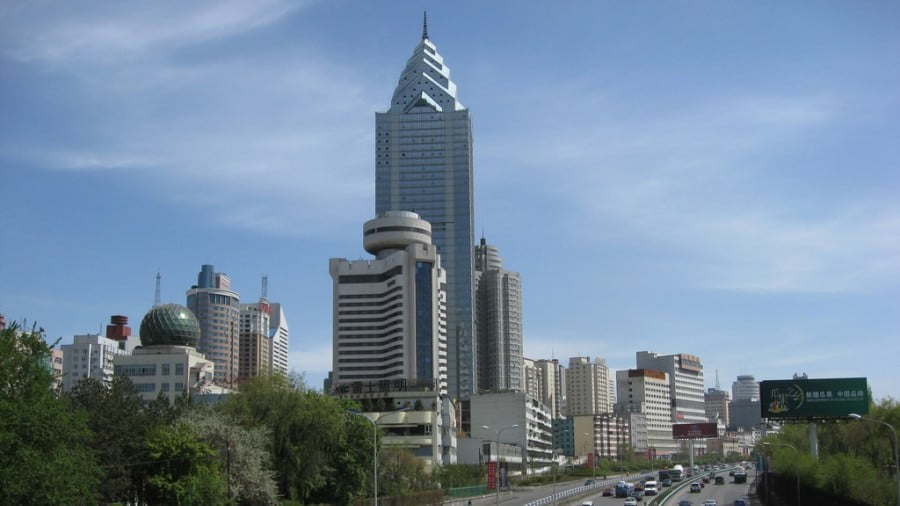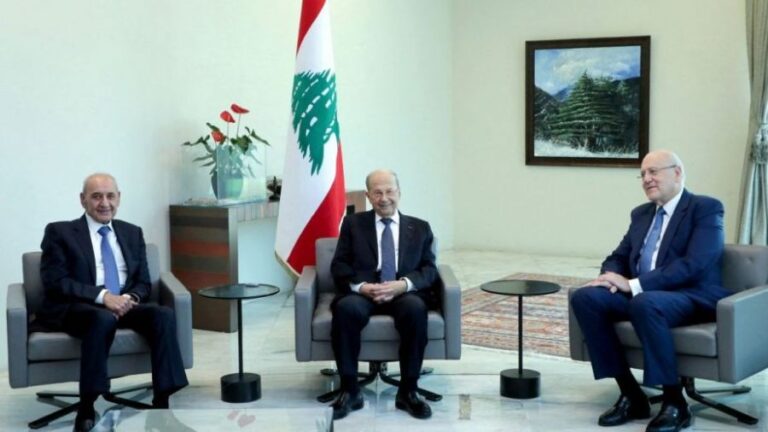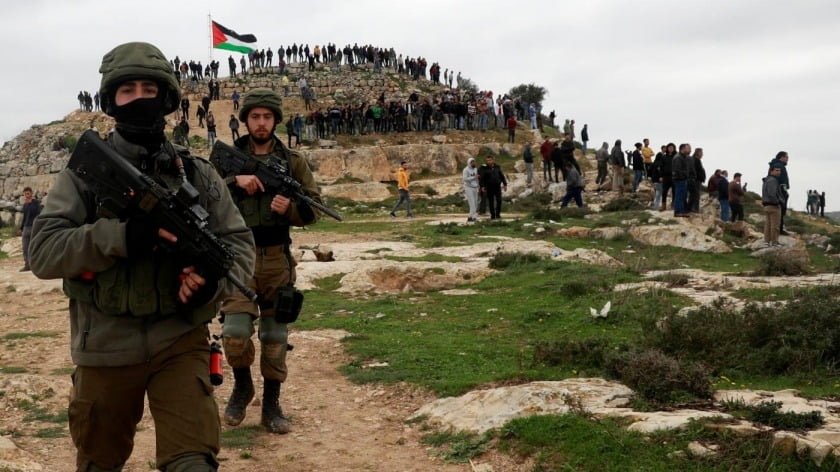Russia, Lebanon, and “Weapons of Mass Migration”
The Lebanese President warned during his trip in Russia that the 1,5 million Syria refugees that his country hosts might be tempted to migrate en mass to Europe if Moscow doesn’t ‘more enthusiastically encourage’ Damascus to facilitate their large-scale return in the near future, though it’s unlikely that this so-called “Weapons of Mass Migration” scenario will materialize since it was probably rhetoric used by the Lebanese leader to ensure a quid-pro-quo with Russia in exchange for clinching forthcoming energy and military deals with it.
A “New Stage” In Russian-Lebanese Relations
Lebanese President Michel Aoun is in Moscow for talks with President Putin that the Mideast leader promised on Twitter would herald a “new stage” in bilateral relations with the Eurasian Great Power. Shortly before his big meeting, he warned that the 1.5 million Syrian refugees that his country hosts might be tempted to migrate en mass to Europe if Russia doesn’t ‘more enthusiastically encourage’ (not a quote but the author’s own euphemism) Damascus to facilitate their large-scale return in the future, immediately making headlines because of the fear that many have of a repeat of the 2015 MigrantCrisis.
Refugee Roulette
The number of Syrians in neighboring Lebanon amounts to nearly a quarter of that country’s total population and has been a serious socio-economic burden on it fraught with latent political and even security risks given that many of the “new arrivals” are anti-government sympathizers (at the very least) who are against President Assad for sectarian reasons. It goes without saying that the US, “Israel”, and/or Saudi Arabia might seek to weaponize this sentiment for use against Hezbollah one day in the future, whether this takes a non-kinetic political form or even a kinetic military one under that scenario.
It’s therefore absolutely imperative that the Syrian refugees return back to their homeland where they belong, but some observers have expressed concern that the Syrian government isn’t doing all that it could to have this happen in spite of its rhetoric to the contrary because it might cynically prefer for anti-government and possibly terrorist-prone elements to remain out of the country indefinitely. Furthermore, some Syrian ultra-nationalists regard Lebanon as being an indispensable part of their civilization-state and might harbor ulterior long-term motives in having their countrymen “forever” remain in the “Lebanese (socio-political) dumping ground”.
Whatever the case may be, Lebanon seems to believe that Russia holds the key to facilitating the large-scale return of Syrian refugees back to the Arab Republic and can help create the conditions for their speedy return. It should be said, though, that Syria might not be prepared for such a rapid influx, not least because it lacks the physical and economic capabilities to handle such an enormous flow that could easily be weaponized against it as well. Actually, the argument can be made that the US has been using “Weapons of Mass Migration” (WMM) against Syria since the start of the war.
“Weapons Of Mass Migration”
Firstly, “brain drain” is a plague on any country, but it only picked up in Syria since the conflict started. Secondly, it’s already acknowledged as a fact that many anti-government Syrian refugees were trained by Turkey in camps just across the border to return to their homeland as militants fighting in the so-called “Free Syrian Army” (FSA). On a third point, their large-scale return from neighboring Lebanon could destabilize the very fragile domestic situation in Syria right now, unless Damascus received considerable Western financial and reconstruction support that the US is making conditional upon it undertaking political concessions first.
To explain the last-mentioned point, the US previously said that it won’t provide financial and reconstruction assistance to Syria until after a so-called “political solution” has been agreed to, which implies Damascus submitting to Washington’s will by “decentralizing” and doing other such “undesirable” things in order to have this happen as soon as possible. Aware of its limitations in handling the fast-paced return of all of its Lebanese-based citizens, it’s understandable why Syria might want this to proceed in an orderly manner in parallel with its expanding capabilities, ergo the accusations that it’s “dragging its heels” in this respect.
Exchanging Syrian Refugees For Russian Deals
Returning to the relevancy of Lebanese President Aoun’s warning about a possibly impending “Weapons of Mass Migration” tidal wave to Europe, his words shouldn’t be taken too seriously because they’re more than likely just rhetoric intended to ensure a refugee repatriation quid-pro-quo with Russia in exchange for signing forthcoming energy and military deals with it. After all, those Lebanese-based refugees would have to presumably cross through Syria and then traverse through Turkey en route to the EU, and while Damascus might turn a blind eye to this happening, Ankara is content with the current refugee deal with Europe and doesn’t seem keen to break it anytime soon.
Unless that changes, then this state of security-political affairs makes it all but impossible for 1,5 million Syrian refugees to swarm out of Lebanon through Turkey on the way to Europe, therefore revealing President Aoun’s warning as attention-grabbing rhetoric more than anything else. The reason that he chose Russia of all places to talk about this is clear, because he assumes whether rightly or wrongly that Moscow can “lean on” Damascus to more actively repatriate its citizens from Lebanon irrespective of whether it’s physically, politically, and militarily prepared to deal with the consequences of implementing its international legal obligations in full.
Russia wants to sign very profitable military and energy deals with Lebanon that the tiny Mideast state might make contingent on the Eurasian Great Power’s support in facilitating the return of Syrian refugees back to their homeland, which would be an extremely prudent move for it to make considering that it wants to get rid of this “hot potato” as soon as possible for the aforementioned socio-economic and security reasons that were described earlier in this analysis. Accepting that this was probably the motivation behind his words and the timing thereof, it’s now relevant to explore whether Russia can do what Lebanon wants.
A Great Power, But With Great Limitations
The short answer is that Russia’s options are limited since it’s already trying to “enthusiastically encourage” Syria to request Iran’s dignified but “phased withdrawal” from the country and get Damascus to commit to the Russian-written “draft constitution” (which strongly suggests surrendering the Golan Heights), so “leaning” on it even more on yet another “contentious” issue such as refugee resettlement might create another “fault line” in their increasingly fraught behind-the-scenes relations. It’s worthwhile pointing out that President Putin apparently isn’t even on speaking terms anymore with President Assad after he chose to dispatch his Defense Minister to pass along a message to him instead of call him like he regularly does Erdogan or Netanyahu whenever there’s something to discuss with them.
Having said that, the refugee issue might be the “straw that breaks the (Syrian) camel’s back” and gets President Assad to “reconsider” his refusal to “listen” to Russia’s “suggestions”, though provided that Moscow is successful in reframing any pro-Lebanese “lobbying” that it does on this issue as part of a larger “package agreement” involving the other two aforementioned issues and “sweetening” the deal with the promise of its own (and possibly also Western) financial aid as well. Even so, Syria has shown itself more than capable of standing strong in the face of Russia’s “requests” if it believes (whether rightly or wrongly) that they’re “inappropriate” and “contrary” to its national interests, so there’s no guarantee that it’ll “bend” on this issue either.
Concluding Thoughts
President Aoun’s visit to Russia came as Lebanon is seeking Moscow’s assistance in facilitating the return of the 1,5 million Syrian refugees in its territory make to their homeland, something that Damascus has been somewhat reluctant to actively assist in and which has since become an issue of national security concern for the two Mideast states, albeit for different reasons. If there’s anyone who can break the “security dilemma” regarding these “Weapons of Mass Migration”, then it’s Russia, though the “balancer” will be expecting military and energy deals from Lebanon in return for trying its best to untie the “Gordian knot”.
By Andrew Korybko
Source: Eurasia Future







